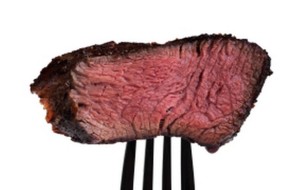Thodoris Roussos stood in his butcher’s shop and pointed to a large white delivery truck at the curb.
 For months, he had put off replacing the tires, because Greece’s financial crisis had cut into business. But recently, he upgraded the van with a set of good wheels at a price that could not be beat.
For months, he had put off replacing the tires, because Greece’s financial crisis had cut into business. But recently, he upgraded the van with a set of good wheels at a price that could not be beat.
“Normally, the tires cost 340 euros, but no money changed hands,” Mr. Roussos said, beaming. “I paid the guy in meat.”
As Greece grapples with a continued downturn, bartering is gaining traction at the margins of the economy, part of a collection of worrisome signs for Prime Minister Alexis Tsipras who was re-elected on Sunday.
Graphic artists are exchanging designs for olive oil. Accountants swap advice for office supplies. In the agricultural heartland and on the Greek islands, informal bartering, which has historically helped communities survive, has intensified as more people exchange fruits, vegetables, other crops, equipment, clothing and services.
